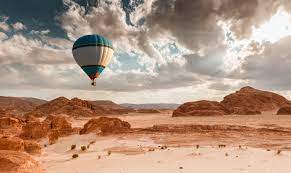Visiting Dubai’s colorful souks is like reading a book full of stories. Every piece of fabric tells tales from the past. It connects you not only to unique textiles but also to a lasting heritage. You might find a handwoven masterpiece that shows the beauty of Emirati culture and hard work. This guide will help you explore and understand the rare textiles in Dubai’s markets. It will make your shopping trip more meaningful by linking it to the heritage of these materials.
Walking through the lively markets, you’ll see traditional textiles that tell their own stories. Their bright colors, patterns, and textures are more than just items. They are pieces of history that can make your collection special. Let yourself go on an adventure to find beautiful textiles that show the spirit of Dubai.
Key Takeaways
- Dive into the immersive experience of exploring the souks for rare textiles.
- Connect personally with pieces that reflect the rich heritage of Emirati culture.
- Discover unique fabric finds that showcase the artistry and craftsmanship of local artisans.
- Gain insights into the significance of textiles in the vibrant marketplace of Dubai.
- Appreciate how traditional textiles add a unique touch to your wardrobe.
Introduction to Dubai’s Souks
Dubai’s souks, or markets, are vital to the city’s culture. They show the cultural heritage UAE and improve the Emirati shopping experience. These markets mix history and the present in a unique way. The smell of spices and colorful textiles draw in visitors.
Overview of Traditional Markets
The souks are lively and full of interesting items. The Textile Souk is the oldest and very successful. It offers fabrics from around the world, with rare designs including those from Japan. Besides textiles, the Spice Souk has many spices, and the Gold Souk offers beautiful jewelry.
Importance of Souks in Emirati Culture
Souks are more than just shopping spots. They are social places where people meet. Bargaining here is an important part of the Emirati shopping experience. The souks show how old traditions meet modern life. They are a living part of the cultural heritage UAE.
For a different view of Dubai, try a hot air balloon adventure. You can see the city’s beautiful landscape from the sky. Find more information here.
Types of Rare Textiles You Can Find
Dubai’s souks are full of rare fabric treasures that show Emirati culture. These markets let you dive into the world of handwoven items, old caravan textiles, and detailed embroidery. Each kind has its own special thing, like the makers’ skill or the story of its creation.
Explore and find Dubai’s traditional textiles. You’ll see unique fabrics that each have their own tale.
Handwoven Fabrics
Local artisans make handwoven fabrics with amazing skill. They use old ways learned from their ancestors. The fabrics have cool designs and bright colors.
They show the deep culture of the UAE. You can see silk and cotton pieces that each have a backstory. These pieces show the love and effort put into making them.
Vintage Caravan Textiles
Old caravan textiles take you back in time. They show the history of trade routes in the area. These textiles share about the culture and life of desert travelers.
Each fabric in the shops holds a different story. They are not just nice to look at but also start great talks.
Embroidered Sabla and Kaftans
Embroidered sabla and kaftans are important traditional clothes. They have beautiful embroidery and details. People wear them for daily life and special events.
Buying these pieces adds special fabrics to your wardrobe. They catch the eye and show the joy of Emirati culture.
| Type of Textile | Characteristics | Cultural Significance |
|---|---|---|
| Handwoven Fabrics | Intricate designs, vibrant colors | Reflects artisanal craftsmanship |
| Vintage Caravan Textiles | Rich historical significance | Connection to ancient trade routes |
| Embroidered Sabla and Kaftans | Luxurious embroidery, traditional forms | Representation of Emirati identity |
Best Souks for Textile Shopping
Dubai’s textile markets are a dream for lovers of old and new fabrics. They have everything from traditional handwoven items to fancy materials. Explore these top spots for souk shopping Dubai textiles to find special textile treasures in Dubai.
The Textile Souk in Bur Dubai
The Textile Souk in Bur Dubai is the go-to for fabric shopping. You’ll see shops full of colorful silk, cotton, and linen. Besides buying fabric, you can also get clothes made just for you here. It’s full of life, with craftsmen and shoppers buzzing around. A great place for those who want something unique for their closet. It’s open Monday to Saturday, 9 am to 2 pm and 4 pm to 9 pm. It’s closed on Sundays.
Souk Madinat Jumeirah
Souk Madinat Jumeirah offers a modern twist on the traditional souk experience. It has cool, air-conditioned spaces and luxury textiles, plus places to eat. You can shop for both traditional and brand-name fabrics. The souk’s vibe is perfect for a relaxed shopping day. It’s open every day from 10 am to 11 pm.
The Gold Souk (with Textile Offerings)
Though famous for gold, the Gold Souk also has amazing textiles. Look past the gold to find stores filled with top-notch fabrics and classic clothes. Bartering is part of the fun here. The Gold Souk welcomes visitors every day from 10 am to 10 pm. It’s a great spot for a diverse shopping adventure in a famous setting.
Tips for Shopping for Rare Textiles
Exploring Dubai’s souks is an exciting chance to find real textile gems. This lively place is best for buyers who know their stuff. It makes for a great shopping experience.
Knowing What to Look For
When looking at rare textiles, pay attention to how it’s made and its quality. Search for things like:
- Texture: The fabric should feel rich and full.
- Colorfastness: Make sure the colors won’t bleed or fade.
- Stitching Quality: Seams and edges should be well-done.
With these tips, you can pick things that are both lovely and have deep roots.
Bargaining Techniques to Employ
In Dubai’s souks, bargaining is a skill. Always bargain with respect and be open. Here are tricks to try:
- Start low, so there’s room to meet in the middle.
- Being polite and friendly helps in negotiations.
- Show interest in more items for better deals.
Also, knowing local customs aids in bargaining. It shows you respect the culture.
Check for Authenticity and Quality
Make sure what you buy is genuine. Ask sellers about where it’s from and how to care for it. Look for quality marks when you can. Your finds should honor Dubai’s deep textile heritage.
How to Care for Your Rare Textiles
Caring for your rare textiles is key for keeping them beautiful and lasting long. They need special care to keep the fabric in good shape. This includes cleaning, storing, and protecting them from damage.
Proper Cleaning Techniques
Different fabrics need different cleaning methods. Silk is best washed by hand to avoid harm. Wool and cotton can often be machine washed. Be sure to use the right temperature to prevent shrinking or fading. Always look at the care labels for tips on how to keep your textiles looking their best.
Storage Tips
Keep your textiles in a cool, dry place away from the sun. This helps stop fading and damage. Use cloth bags or acid-free paper to protect them from dust. Don’t use plastic as it can cause mold. Check your textiles often for any signs of harm or bugs. Doing these things will help you take care of rare textiles in Dubai.
Preventing Damage from Wear and Tear
Being gentle with your textiles is important to make them last. Don’t put heavy things on delicate fabrics to avoid tears or creases. Use protective covers to keep them safe from dust and the environment when you’re using or showing them. Paying regular attention to these tips can help keep your textiles in good shape for many years.
| Care Aspect | Recommendations |
|---|---|
| Cleaning | Handwash silk, use appropriate cycles for other fabrics |
| Storage | Cool, dry place, breathable bags, avoid sunlight |
| Maintenance | Inspect regularly, handle gently, cover when not in use |
Cultural Significance of Textiles in Dubai
Textiles are more than just stuff in Dubai. They are a big part of what makes people in the UAE special. Emirati identity textiles show the culture, status, and different places people come from. Each piece has a story, talking about history and the skill in making them.
Textiles and Emirati Identity
In Dubai, clothes like the abaya and kandura show how important textiles are. They’re not just about looking modest. They’re about being proud of where you’re from. The fabrics, designs, and styles all tell the world about Emirati identity.
The Role of Textiles in Traditional Clothing
Old clothes are made of special fabrics that families keep for a long time. Silks and fancy stitches make clothes look really special. These textiles help people remember their past while they look forward to the future.
Influence of Global Cultures on Local Textiles
Dubai is becoming more connected to the world, and this changes local textiles. Mixing global styles with traditional ways makes for lots of choices. This mix adds to the city’s market and shares Dubai’s big-city life.
In this lively place, you can do fun stuff like riding a hot air balloon over the desert. You’ll see how textiles make the desert even more beautiful. For more on this cool experience, visit this link.
FAQ
Where can I find rare textiles in Dubai?
Rare textiles are in many souks in Dubai. The Textile Souk in Bur Dubai is famous for silk, cotton, and traditional clothing. Souk Madinat Jumeirah offers luxury textiles too.
What types of textiles are available in Dubai’s souks?
You can find handwoven fabrics and vintage items in Dubai’s souks. They also have beautiful embroidered clothing. These pieces show the skill of local artists and the area’s rich culture.
How important is bargaining when shopping for textiles in Dubai?
Bargaining is key in Dubai’s souks. Learning to negotiate with respect can help you get better deals. This way, you can find unique and authentic textiles at good prices.
How can I ensure the authenticity of the textiles I buy?
To make sure your textiles are genuine, check the fabric closely. Look at the texture, color, and stitching. Ask for care tips or certifications. This helps confirm the quality of your purchase.
What should I do to care for my rare textiles purchased in Dubai?
Care for your textiles by cleaning them right, based on the fabric type. Keep them in a cool, dry spot out of the sun. Regularly check them for damage to keep them looking great.
Why are textiles significant in Emirati culture?
Textiles are a big part of Emirati life and traditions. They show identity, social status, and values. Traditional clothes like the abaya and kandura are essential in daily life and special events.
Are there vintage textiles available in Dubai’s souks?
Yes, you can find vintage textiles in many souks. These pieces are full of history and culture. They tell stories of past trade and heritage in the region.
What should I look for in high-quality textiles?
High-quality textiles have detailed designs and strong stitching. Check the material’s quality as well. Ask where it’s from and how to care for it. This ensures you get a great piece.



